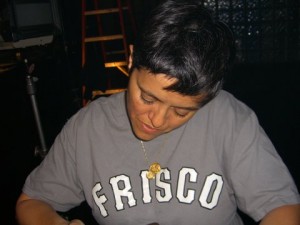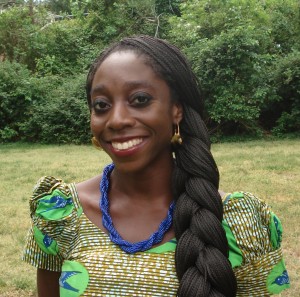 Mary Guzmán
Mary Guzmán
Replaceable is a short narrative film about the aftereffects of a lesbian divorce. Adela struggles through the break-up of her family and the devastating fight for her parental rights as the non-biological parent, using the only weapon she has left: her sense of humor. The film, a combination of black and white animation and live-action stock footage, shows a journey of heartbreak that will evoke both laughter and compassion.
 Heather Lenz
Heather Lenz
KUSAMA: Princess of Polka Dots is a feature documentary about avant-garde artist Yayoi Kusama. Born in rural Japan in 1929, Kusama’s early artistic ambitions were out of sync with the era. During the 1960s Kusama lived in NYC and rivaled Andy Warhol for press attention. Now in her 80s, she has spent the last 30 years in a Tokyo mental hospital. Always prolific, Kusama has continued to create paintings, sculptures, installation art, and more! She is currently the subject of a retrospective organized by the Tate Modern Museum.
 Kate Marks
Kate Marks
Miracle Maker: A Tale for Lost Causes and Desperate Casesis set in the landscape of a pre-apocalyptic world, where the swimming pools are empty, where everything is For Lease, where the protesters have been picketing for years, and everyone is looking for a miracle. The story follows a twelve year-old boy (Jovan Armand) who works as an assistant to his Uncle (Del Zamora), a door-to-door vacuum cleaner salesman on a ten-year losing streak. When the boy hears of a fabled miracle maker (Bonita Friedericy) on the edge of town, he makes her their next appointment with the hope that she will cure his father’s illness.
 Akosua Adoma Owusu
Akosua Adoma Owusu
Kwaku Ananse is an intensely personal project which draws upon the rich mythology of Ghana. This short film combines semi-autobiographical elements with the fable of Kwaku Ananse, a trickster folk hero in West African stories, who appears as both spider and man. The film explores the theme of doubleness; there are two sides to everything and everyone. It is a reflection of a broader truth about the human condition and the nature of our personal relationships, explored through the collision of modern storytelling techniques and traditional Ghanaian culture. Kwaku Ananse is an effort to preserve a folktale Owusu’s father passed on to her, and to share this tale’s power and wisdom with the world.